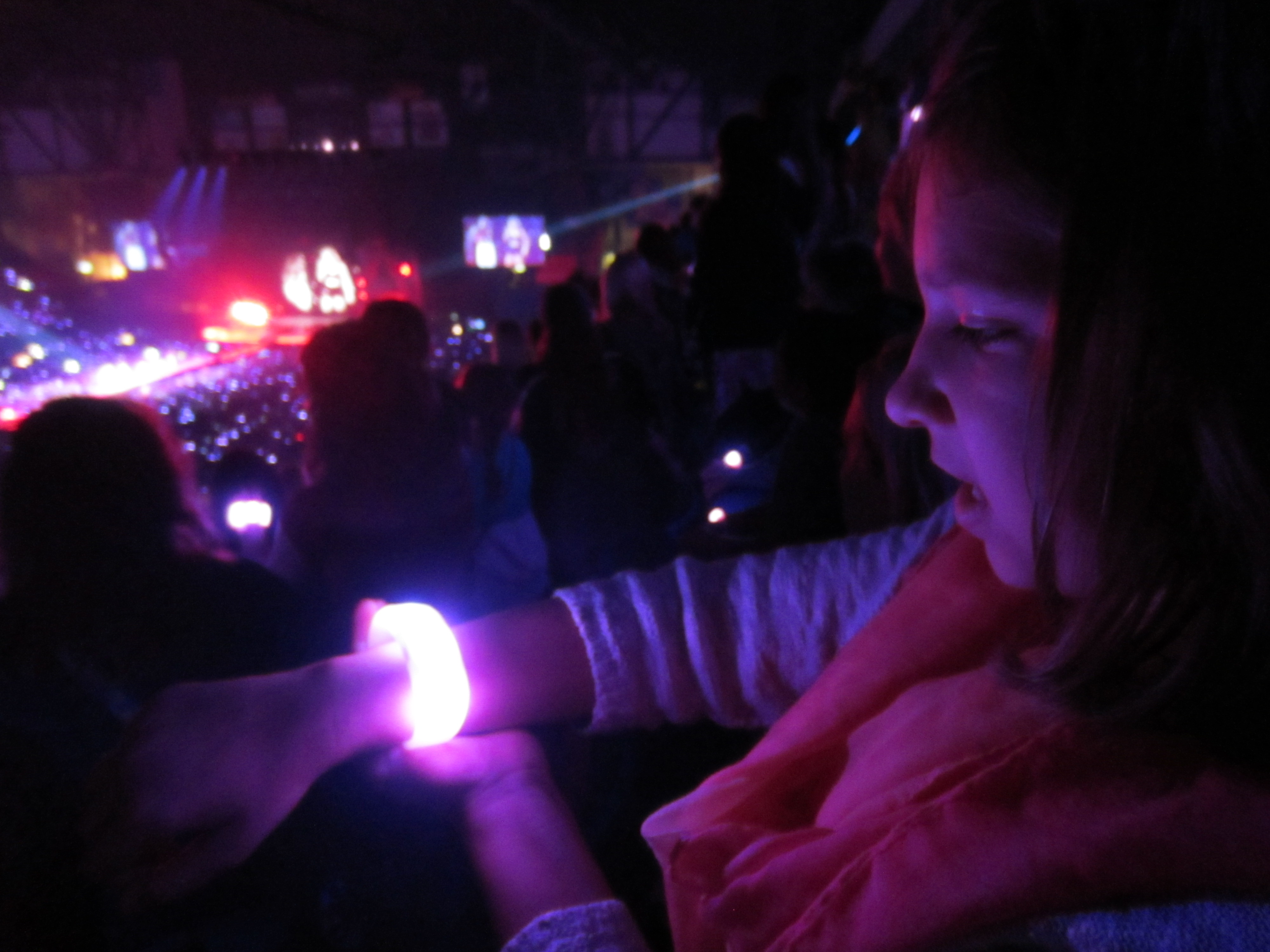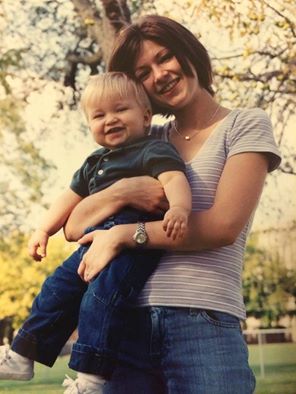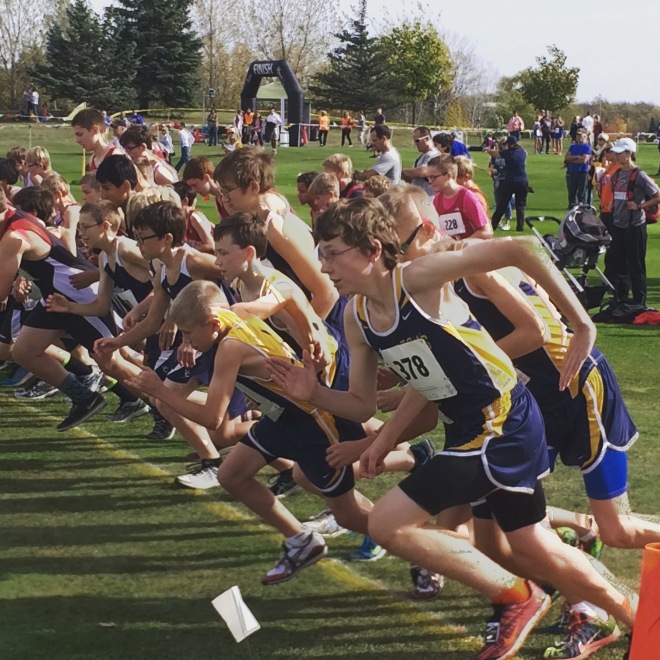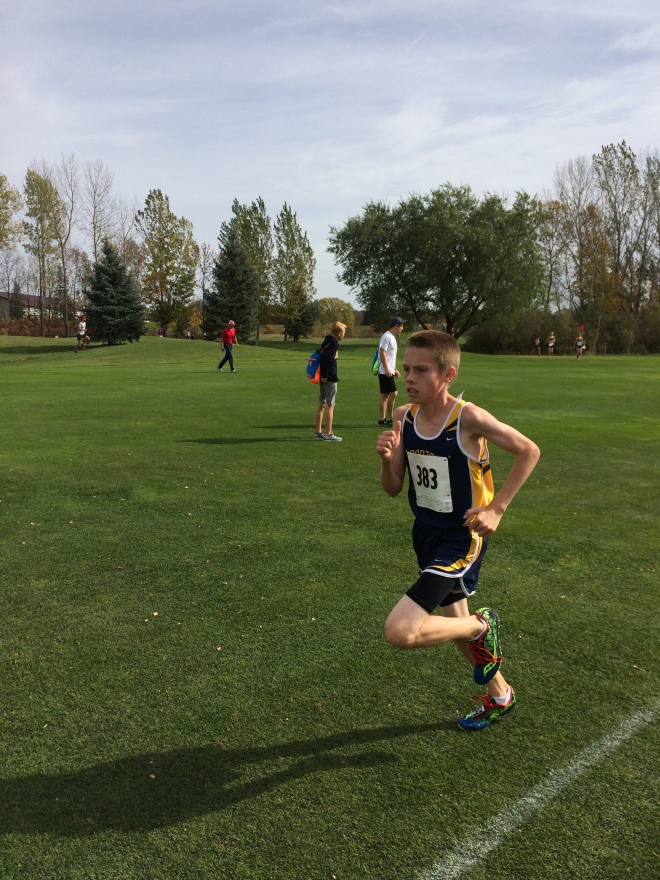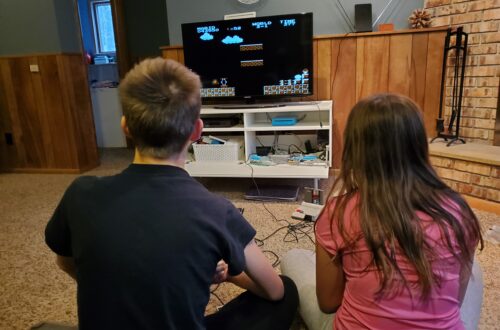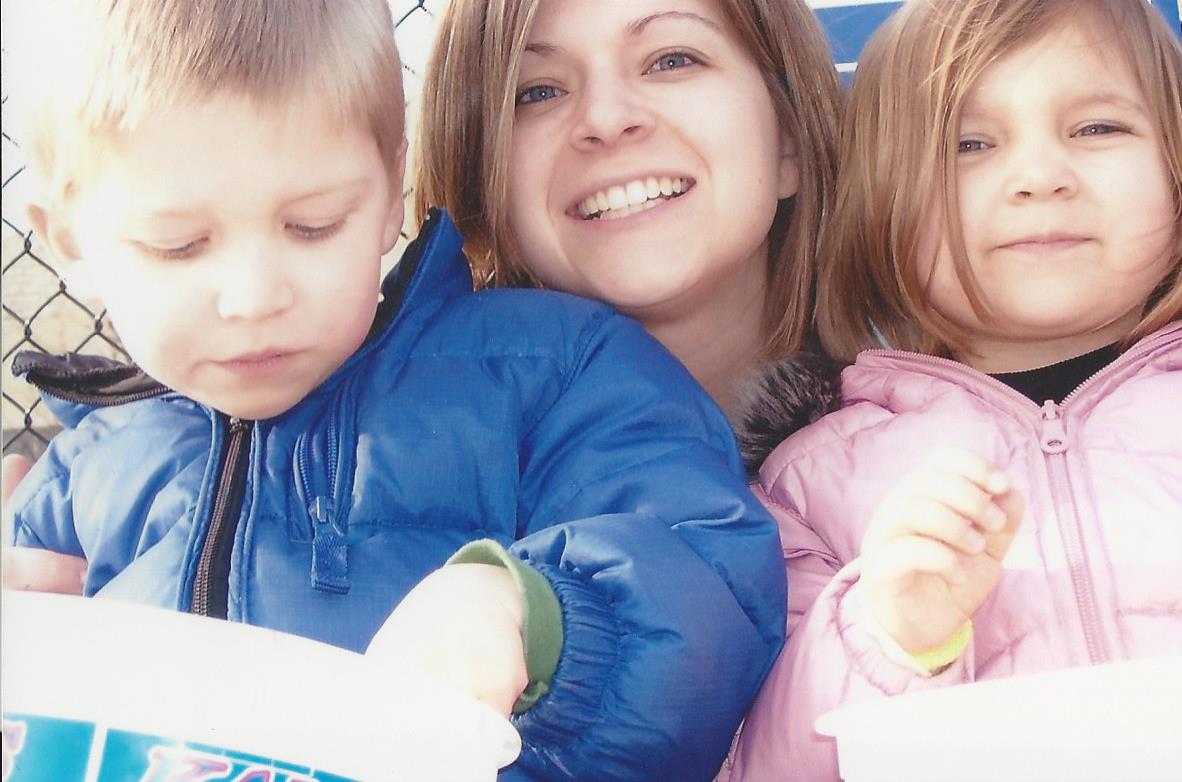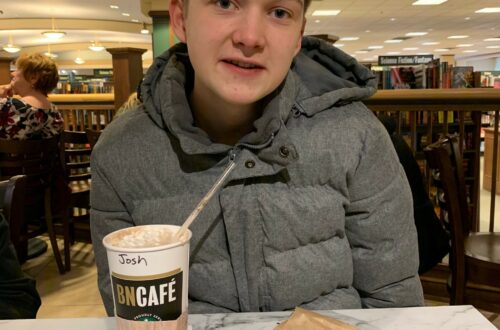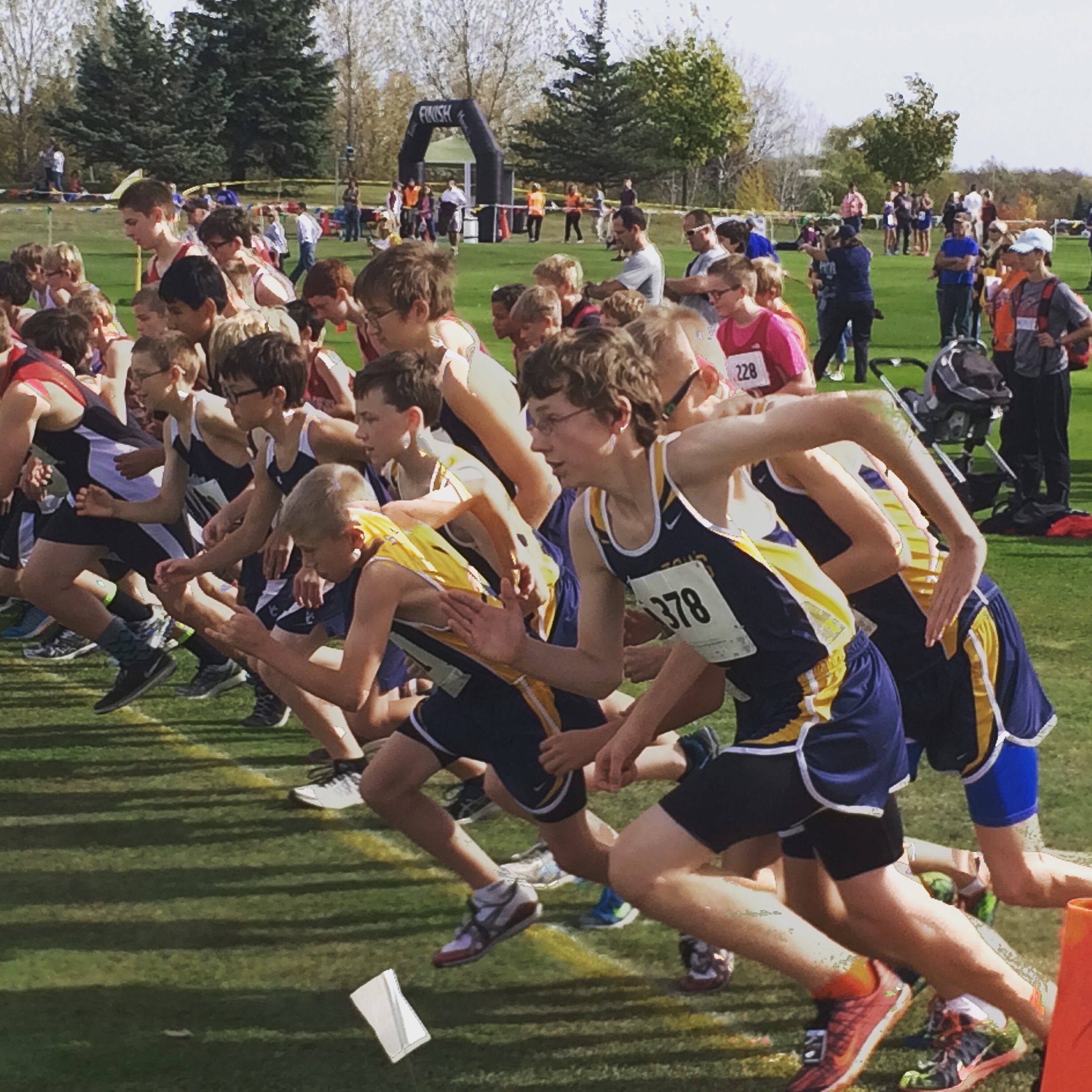
Little Changes and a Step Closer to Empathy
 Fall is in full force here in Fargo. J insists that our fridge is stocked with chilled cider and that every morning starts with hot chocolate chip muffins. He has set ideas about these things.
Fall is in full force here in Fargo. J insists that our fridge is stocked with chilled cider and that every morning starts with hot chocolate chip muffins. He has set ideas about these things.
I insist that J looks for the changes in the trees as we walk to the high school for XC practice. Fall is by far the best reminder for me that little changes happen every day. The way that the tops of a maple catch crimson one day and in a few more days the fiery red has spread to the next tier of branches and then the next week a new tier catches fire. When I watch the trees I’m reminded that these things take time and that most changes aren’t baptisms by fire. They happen moment by moment. Trees don’t turn in a day, or even at the same time. J and I talk about this every day when we walk to practice. We make a game of finding the new things.
This week we’ve experienced little shifts in the J world. When J gets out of school his para and I have a little “2 minute replay” on how the day went. One thing his para mentioned this week was how math is becoming a struggle for J. He’s having a hard time organizing and executing the multiple steps now required to make it through a problem. My heart sunk when I heard this. This is the one thing J has always been able to do since a toddler. It feels like sometimes we’re starting to lose some of his core strengths. And let’s be honest, math isn’t my core strength.
“He’s doing really well in Language Arts though. He’s doing really well in comprehension. He had no problem with it on his last test on Thunder Cave,” his para tells me.
What? Reading Comprehension? When did this switch happen in his brain? This is something he’s struggled with his entire life.
One switch I’ve noticed this last month is that J’s been making progress socially. I notice it as we sit in the car waiting to walk up to practice. He’ll open the door and yell out, “Hey L! I hope you have a great weekend!” or “Hey, K! I’ll see you tomorrow!” No Chevy talk (see this post). 100% appropriate, on topic, short and sweet interactions.
Friday was J’s birthday party and J was more than excited for it. He just went ahead, asking kids on his own if they wanted to come to his party. We’ve done a movie night for every birthday for as long as I can remember. It’s the easiest for someone who struggles with social interactions. You spend the first half hour eating pizza while kids trickle in, then you start the movie (which is usually over an hour), then you eat cake, then parents arrive for pick up. It’s the ultimate autism party (or first date). You get to hang out with someone without actually have to interact, and both sides usually end up having a good time.
This time we tried something different. We held a karaoke party instead. Eight stellar kids from school came over to eat pizza, sing, eat cake, and jump on the trampoline. When the last kid left Steve and I were floored. How did that just happen? We had a successful party with successful social interaction. Sure, J was his quirky autistic self, but he took turns with karaoke, listened to other people sing (without getting impatient or complaining about the song choice which is what he does when we do it together as a family). Once again, no Chevy talk.
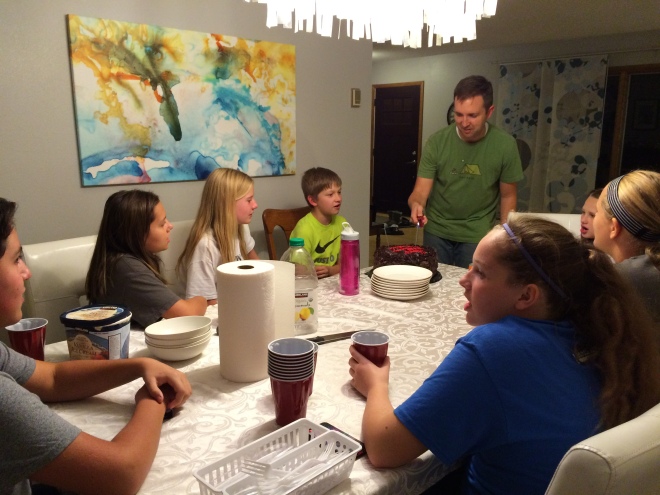
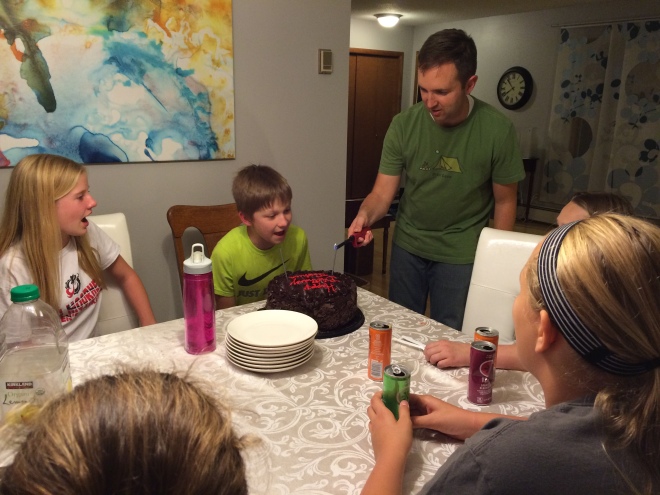
The next morning J was relishing in the post birthday glory, but the XC team had a meet in South Fargo and I thought it would be a great opportunity for J to support his teammates. Keep the positive interactions happening, right? After breakfast when I told him that we were going, he told me flat out, “No, I don’t want to go. I don’t want to do that.”
I asked him how he would have felt if none of his friends came to his party. “They have to come to my party, they’re my friends,” he said, almost as if they had no choice in the matter. I told him that he had to go cheer on his teammates because “they are your friends and they expect you to come.” He still wasn’t happy. After all, the world revolves him and we do things the way he thinks they should be done. Because autism.
We showed up at the meet and the middle school girls ran first—in fact, one of the friends who showed up to the party the night before was there. He cheered out of obligation. Only because I told him to. His heart was definitely not into it. In fact, he kept asking for the Gatorade we brought along, (just in case) because it was supposed to be hot that day. He kept asking for it (very loudly) as these poor kids were running by, thirsty and exhausted. I had to explain to him how rude it was to ask for Gatorades in front of runners who were running but he didn’t buy it. He was thirsty and that’s all he could think about. Himself.
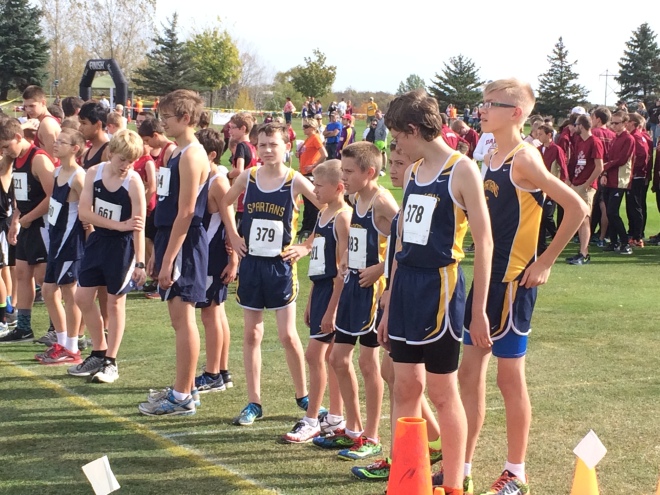
The boys at the starting line. Watching them gives me those nervous race day butterflies!
By the time our boys ran, J was very impatient. He wanted to go home but I insisted we stay. He cheered on the boys just like he did the girls—a halfhearted effort, but he was there, doing it. Because I kept saying, spelling it out to him that “when we are friends with someone, we are there with them. Physically with them. They see your body here and they know that you are their friend. Just like your friends were there, at our house, for your party.”
At the end of the race we met up with our small group of middle school racers as they were choking down their water. They were genuinely excited to see J there. They kept saying over and over, “J, we’re so glad you came to watch us run!” Sweaty high fives all over the place. And J picked up on that because he’s starting to read—understand genuine-no-strings attached-no ulterior-motive-emotion. It was the first time all morning he was glad to be there. The meet was still about him in his brain—I know that—because seeing them happy made him feel good about himself (yes, it’s still very selfish) but it’s a step closer to empathy. It’s a step closer to understanding the people in the world around them.
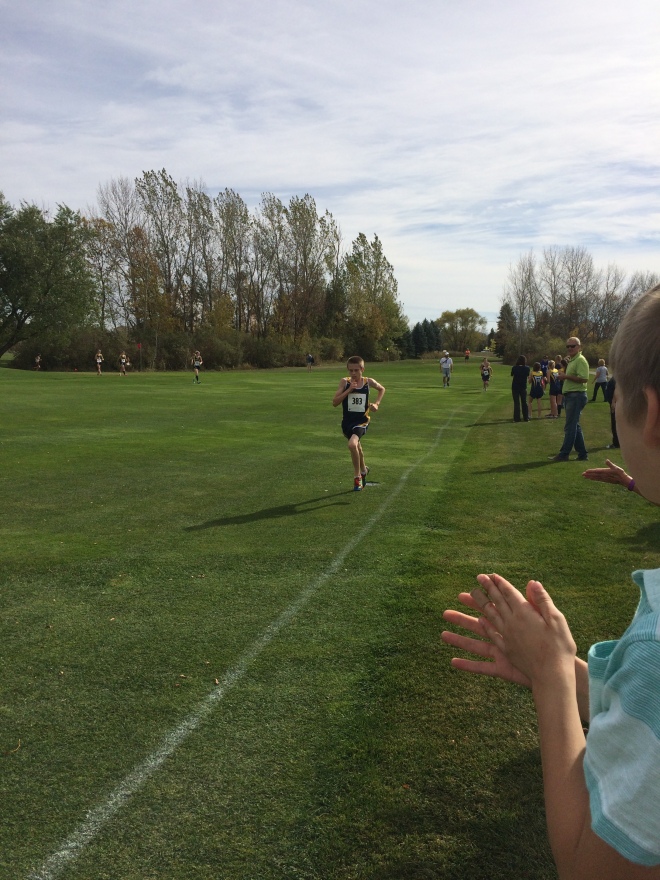
I think of his para’s comments on reading comprehension. I’m not sure why it’s improving. Maybe it’s all the books we read every night. Maybe it’s the reading comprehension app we try to use every day. Maybe it’s a combination of things. Life experiences—having friends come over, being there for friends, maybe that’s helping him understand things better. There’s a strong relationship between the two. More and more research is coming out that kids need to be taught empathy—especially boys. They don’t necessarily just “pick it up.” There’s also research coming out that reading—especially fiction—helps people develop stronger feelings of empathy. As Atticus Finch says: “You never really understand a person until you consider things from his point of view… Until you climb into his skin and walk around in it.”
We’re not ready to walk around yet, but we’re getting closer. Being in the same space is a start.
Whatever is happening, we’ll take it. Even if it means we’ll be working more on math…
